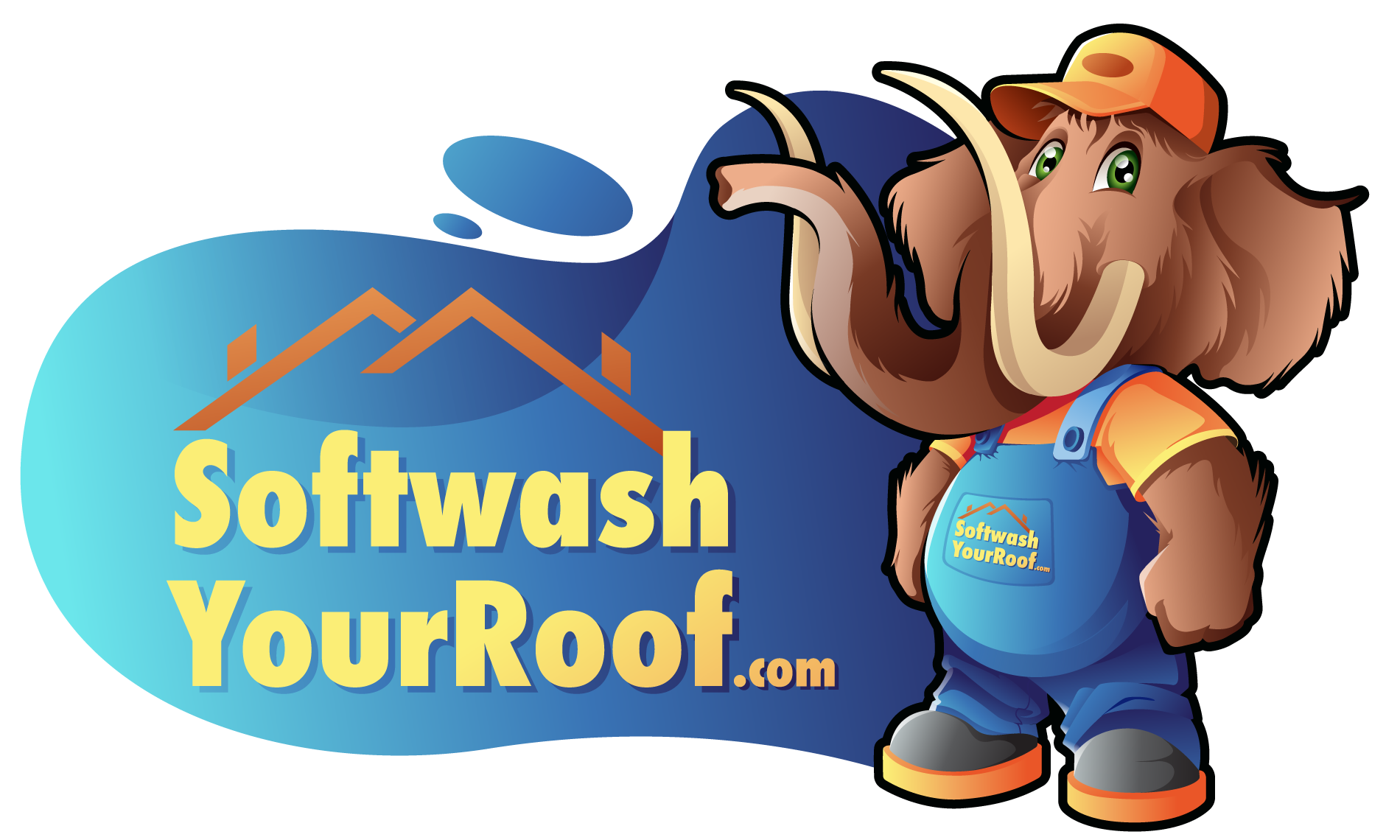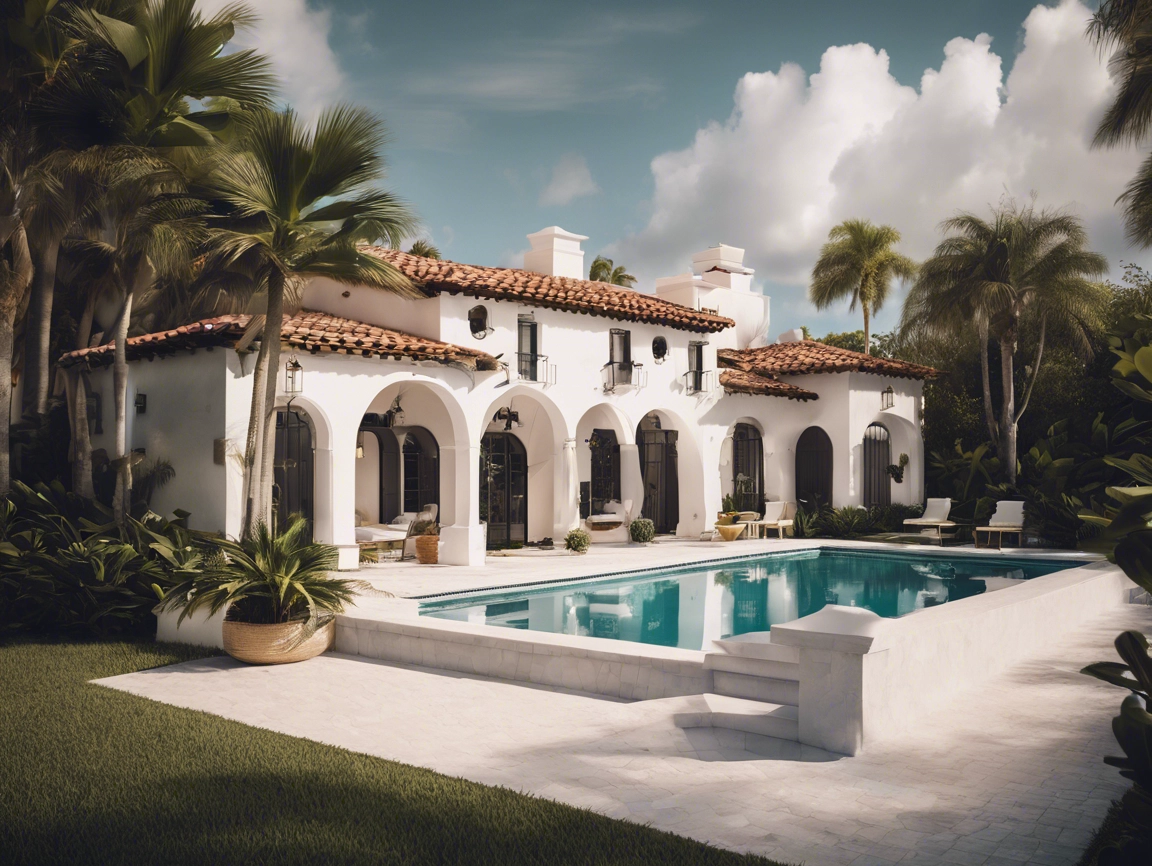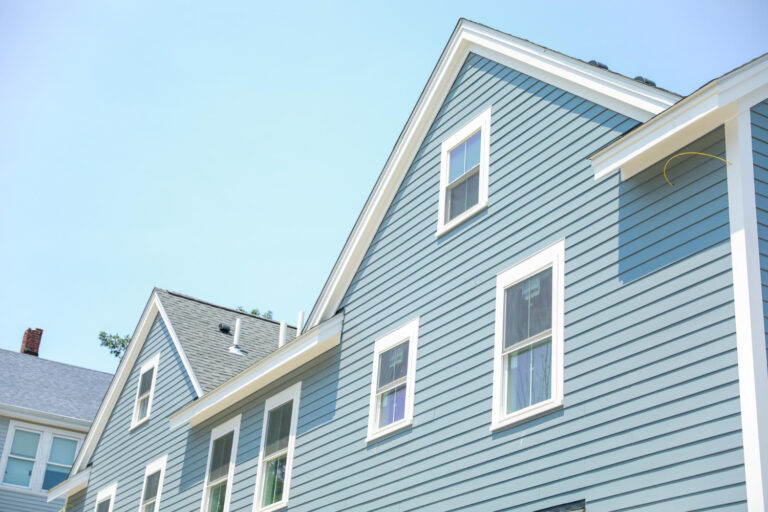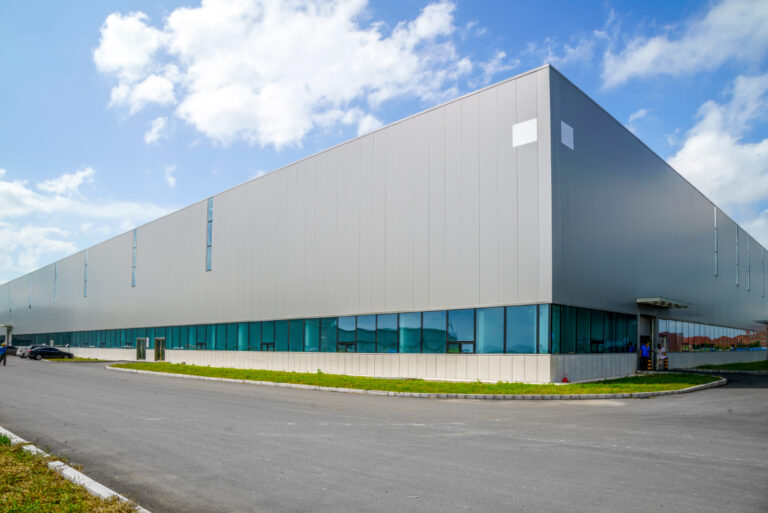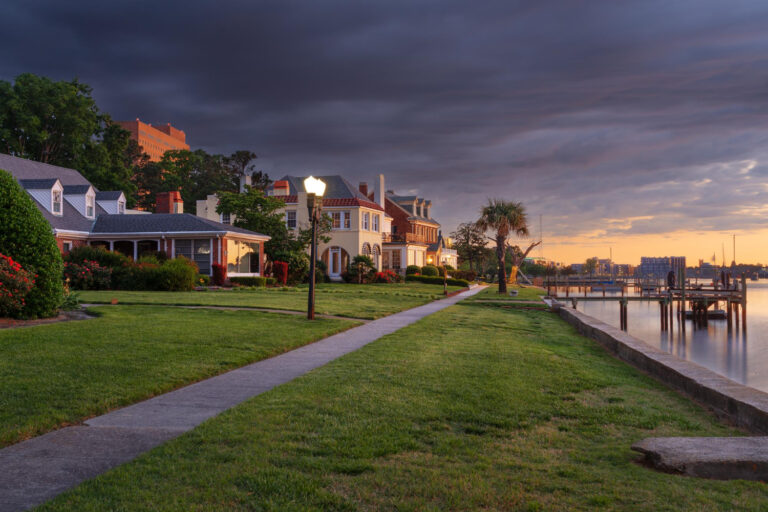How to Pressure Wash Your Driveway and Sidewalks in Miami(2024)
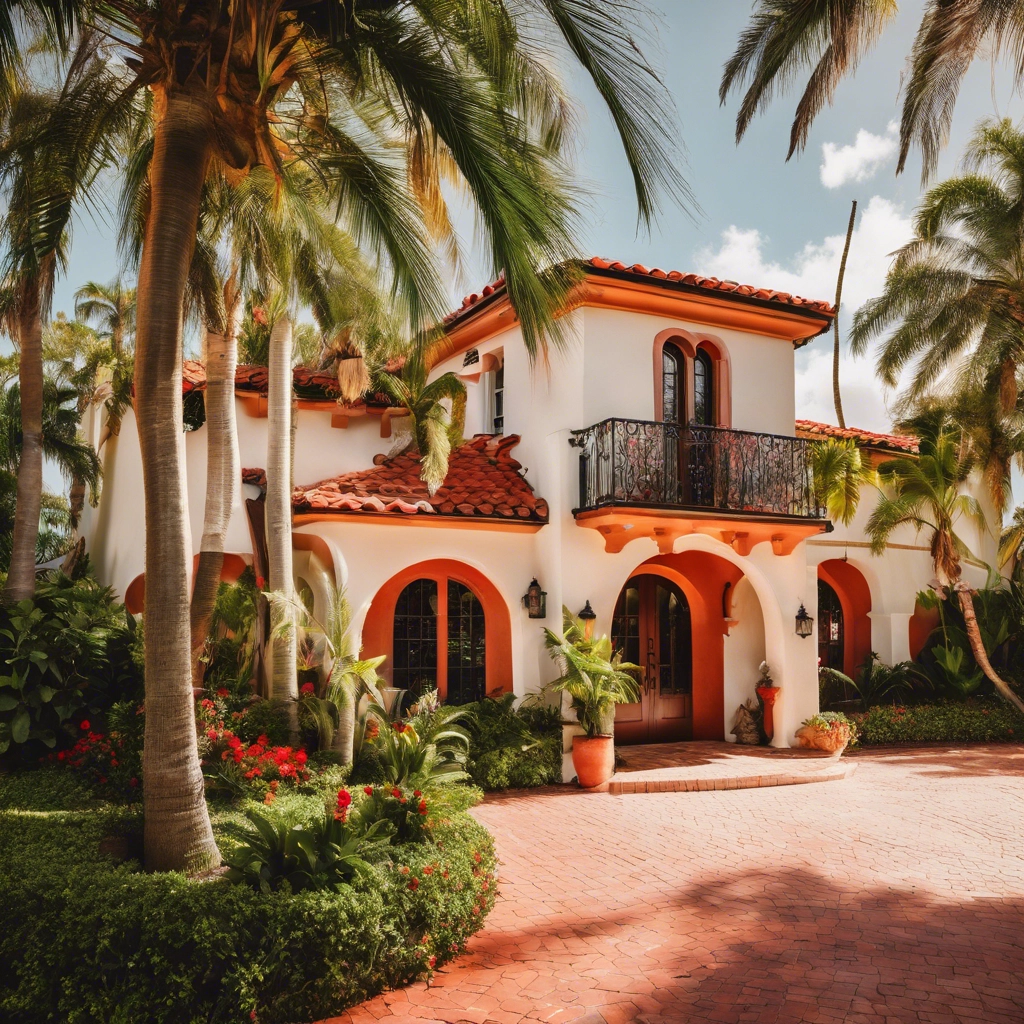
How to Pressure Wash Your Driveway and Sidewalks in Miami
As a homeowner in Miami, you hold a significant responsibility in maintaining a clean and attractive property. Your proactive approach in pressure washing your driveways and sidewalks can greatly enhance your home's curb appeal. Regular power washing keeps your concrete surfaces fresh and helps prevent the buildup of mold and mildew, which is common in our humid climate.
In this guide, we'll walk you through the process of pressure washing your driveway and sidewalks in Miami. We'll cover everything from getting ready for the job to doing the perfect cleaning. We aim to give you the know-how to use a pressure washer for concrete effectively, whether you're new to DIY pressure washing or looking to improve your technique. By the end, you'll be well-equipped to tackle this essential home maintenance task confidently.
Understanding Miami's Unique Pressure-Washing Challenges
In Miami, pressure washing our driveways and sidewalks comes with its own set of unique challenges. It's crucial to be well-informed and prepared to understand and address these factors effectively. Let's dive into some key issues we face when tackling this essential home maintenance task in our vibrant city.
Hot and Humid Climate Considerations
Miami's tropical climate significantly influences how we approach pressure washing. The high humidity and frequent rain create an environment where mold, mildew, and algae thrive. These unwanted guests can quickly take over our concrete surfaces, leaving them looking dirty and potentially causing damage if left unchecked.
We've found that the rainy season, in particular, can cause a lot of mildew growth due to the constant moisture in the air. This means we often must pressure wash more frequently than homeowners in drier climates. It's not uncommon for us to need to clean our driveways and sidewalks at least once a year, but sometimes more often if we've had a particularly wet season.
The intense heat in Miami also affects how we pressure wash. We've learned that it's best to avoid pressure washing during the hottest parts of the day. The extreme temperatures can cause the cleaning solutions to evaporate too quickly, reducing their effectiveness. Instead, we try to do our pressure washing in the early morning or late afternoon when it's a bit cooler.
Common Stains on Miami Driveways
Our driveways in Miami are subjected to various stains that can be tough to remove. Some of the most common culprits we deal with include:
• Oil and fuel stains: These are often the result of car leaks and can be particularly stubborn.
• Rust stains: Our proximity to the ocean means salt in the air, which can lead to rust stains on concrete surfaces.
• Mold and mildew: The humid climate makes these a constant battle.
• Tire marks: These can be especially noticeable on lighter-colored concrete.
• Food and beverage stains are common in our outdoor-loving culture, from backyard barbecues to spilled drinks.
We often need specific cleaning solutions and techniques to tackle these stains. For example, we've found that using a degreaser can help with oil stains, while a rust remover might be necessary for those stubborn orange marks.
Local Water Restrictions
One of the most important things we must remember when pressure washing in Miami is our local water restrictions. Miami-Dade County has permanent water restrictions in place to conserve this precious resource. These rules on the Miami-Dade County website apply to all water sources, including public utilities, private wells, and surface water bodies like canals and lakes.
While pressure washing isn't explicitly prohibited under these restrictions, we must still be mindful of our water usage. Here are a few key points to remember:
• We're allowed to use water for pressure cleaning of paved surfaces, but we should do so responsibly.
• It's best to Use a pressure washer with good water efficiency to minimize waste.
• We should avoid letting water run off into storm drains, as this can carry pollutants into our waterways.
By being aware of these challenges and addressing them, we can ensure that our pressure-washing efforts in Miami are effective and responsible. It's all about balancing keeping our properties clean and respecting our unique environment by using water responsibly.
Preparing Your Pressure Washer for the Job
One of the most crucial steps in preparing for pressure washing your driveway in Miami is ensuring you have the right equipment for the job. This not only ensures your safety but also the effectiveness of the cleaning process. Let's go through the essential preparation steps, starting with the importance of using the right pressure washer.
Checking Hoses and Connections
Using a pressure washer incorrectly can lead to damage to the surface being cleaned, injury to yourself or others, and even damage to nearby plants or property. Always follow the manufacturer's instructions and safety guidelines when using your pressure washer. This includes wearing appropriate protective gear, using the correct cleaning solutions, and testing the pressure on a small area before starting the job.
We use a standard 3/4″ male thread that fits into the pump for the garden hose connection. Our high-pressure hose typically has a quick-connect fitting or an M22 connection, depending on whether we use a gas or electric model. We double-check that these connections are clean and debris-free to ensure a proper seal.
We also pay attention to the condition of our hoses. While PVC hoses are standard in consumer models and work well for DIY pressure washing in Miami, we prefer rubber-based hoses for their flexibility and durability in our hot climate. These hoses are easier to work with and tend to last longer.
Mixing Cleaning Solutions
We often use a cleaning solution to tackle the tough stains on our Miami driveways. We mix our solution carefully, following the manufacturer's instructions. We use water, sodium hypochlorite (bleach), and a surfactant for a standard mix.
We start with a 10% sodium hypochlorite solution available at local stores. For a typical house wash mix, we combine 2 gallons of this solution with 3 gallons of water. We then add a surfactant, about 1 ounce per gallon of mix. This helps the solution stick to the surface longer, improving its cleaning power.
We might increase the concentration slightly to achieve stricter stains on concrete. However, we're always careful not to make the mix too strong, as this could damage the surface or harm nearby plants.
When mixing, we wear protective gear and work in a well-ventilated area. We also label our mixture clearly to avoid any confusion later.
Testing on a Small Area
Before pressure washing our entire driveway, we always test our setup on a small, inconspicuous area. This step is crucial for several reasons:
- It helps us gauge the effectiveness of our cleaning solution.
- We can adjust the pressure to avoid damaging the concrete.
- It allows us to check if our equipment is functioning correctly.
We start with a lower pressure setting and a broader spray nozzle, usually the 40-degree tip. This gives us a gentler clean. We then gradually increase the pressure or switch to a narrower nozzle.
During this test, we pay close attention to how the concrete reacts. If we notice any etching or damage, we immediately adjust our technique. We also check if our cleaning solution effectively removes dirt and stains.
By taking these preparation steps, we set ourselves up for a successful pressure-washing job. We ensure our equipment is in good condition, our cleaning solution is mixed correctly, and our technique is appropriate for our Miami driveway. This careful preparation helps us achieve a clean driveway without causing any damage to the concrete or our pressure washer.
Executing the Perfect Pressure Wash
Now that everything is ready, it's time to start pressure washing our driveway in Miami. We'll break this process into manageable steps to ensure we get the best results.
Starting with the Driveway
We always begin at the highest point of our driveway. This strategy allows the water and dirt to flow downhill, preventing us from cleaning areas that will get dirty again. Here's how we tackle it:
- We attach our 15-degree nozzle to the pressure washer wand. This nozzle gives us a good balance between cleaning power and coverage area.
- Standing about 12 to 18 inches from the surface, we sprayed sweepingly. We overlap each stroke by about 6 to 8 inches to ensure we don't miss any spots.
- We move the nozzle closer for tough stains, but we're careful not to hold it in one spot for too long to avoid damaging the concrete.
- We work in small sections, moving steadily across the driveway. This method helps us maintain focus and ensures we clean every inch thoroughly.
We might use a surface cleaner attachment when dealing with a particularly large or dirty driveway. This tool can cover more areas quickly and provides a more even clean, which is real-time when pressure washing driveways in Miami.
Transitioning to Sidewalks
Once we finish the driveway, we move on to the sidewalks. The process is similar, but we need to be extra careful here. Sidewalks often have more foot traffic and can be more susceptible to damage. Here's our approach:
- We switch to a broader spray nozzle, usually a 25 or 40-degree tip. This gives us a gentler clean that's less likely to damage the concrete.
- We start at the sidewalk's edge closest to our property and work outward. This prevents us from walking on wet, freshly cleaned areas.
- We maintain a consistent distance and pressure as we move along the sidewalk. Consistency is critical to achieving an even clean.
- We could switch back to the 15-degree nozzle for more precision for corners and edges.
Remember, when pressure washing in Miami, we must be mindful of water usage. We work efficiently to conserve water while still getting a thorough clean.
Dealing with Stubborn Stains
Miami's climate can lead to some tough stains on our concrete surfaces. Oil, rust, and algae are common culprits. Here's how we handle these stubborn spots:
- For oil stains, we apply a degreaser before pressure washing. We let it sit for about 5-10 minutes, then scrub it with a stiff brush before rinsing it with the pressure washer.
- Rust stains often require a specialized rust remover. We apply it according to the manufacturer's instructions, then rinse thoroughly with the pressure washer.
- Algae and mildew are common in Miami's humid climate. To remove them, we use a mixture of water and bleach. We apply the solution, let it sit for a few minutes, and then rinse it away with the pressure washer.
- We might need to repeat the process or use a rotating scrub brush attachment for extra scrubbing power if we encounter stubborn stains.
Throughout the process, we always protect surrounding plants and surfaces from overspray. We also thoroughly rinse all cleaning solutions to prevent damage to our concrete or the environment.
Following these steps, we can effectively pressure wash our driveway and sidewalks in Miami, leaving them clean and well-maintained. Remember, patience is critical when dealing with stubborn stains. It's better to take a little extra time than to risk damaging our concrete surfaces with excessive pressure.
Conclusion
Pressure washing our driveways and sidewalks in Miami significantly influences maintaining our homes' curb appeal and preventing mold and mildew buildup. We can achieve excellent results by understanding the unique challenges posed by our hot and humid climate, preparing our equipment correctly, and following the proper techniques. This guide has provided insights into tackling common stains, working efficiently, and respecting local water restrictions, empowering homeowners to keep their concrete surfaces clean and well-maintained.
Regular pressure washing enhances the look of our properties and helps extend the life of our driveways and sidewalks. By taking care of these surfaces, we contribute to the overall beauty of our neighborhoods and protect our investment in our homes. For those who prefer to leave this task to the professionals, Softwash Your Roof offers free quotes for pressure washing services – you can reach them at (786)876-3505 or [email protected]. Whether you DIY or hire experts, keeping up with pressure washing is vital to home maintenance in Miami's unique climate.
FAQs
Is a permit required to operate a pressure washer in Florida?
At the time of this writing, there is no state-wide requirement for a license specifically for pressure washing in Florida. However, verifying with local city and county authorities is essential to determine whether business licensing is necessary.
What is the cost of pressure washing a driveway in Florida?
The cost of professional pressure washing services typically ranges from $100 to $200 per hour, and it can vary depending on whether the job is residential or commercial.
What should be applied to a sidewalk before starting pressure washing?
Before you begin the pressure washing process, it is best to apply a pretreatment solution. This solution should consist of water, bleach, and mild soap. Could you ensure the mixture is balanced to effectively clean without harming the concrete? Always wear protective gear such as gloves and goggles while handling and applying the solution.
Can pressure washing effectively clean sidewalks?
Yes, pressure washing is an effective and economical method to enhance the curb appeal of your property by cleaning sidewalks. This process can quickly transform a stained sidewalk, making it appear as good as new within a few hours.
